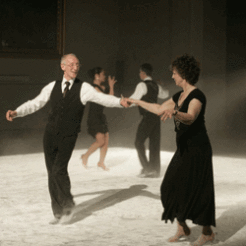The chair of the British Council has questioned whether the arts community has made a strong case for giving to arts and culture and called on arts fundraisers to improve the way they communicate the cause.
Sir Vernon Ellis, philanthropist and chair of the British Council, said that arts fundraisers often complain that trusts and foundations only want to fund peripheral aspects of their work – outreach, education, community engagement and the like – rather than the ‘core’, comprised of programmes and productions.
“I wonder if arts organisations themselves have made a good enough case for the core,” Sir Vernon said last night.
He said that in addition to making a stronger case for the cause, and stronger case for core funding in particular, the arts community need to have a more sophisticated approach to investing in fundraising for the future, rather than seeing fundraising as filling the gap between state income and predicted expenditure.
“I believe there is a role for the state, a very important role, but it is being squeezed,” he said. “I believe it will come down again.”
He said the era of ‘arts for arts sake’ is on the decline, and that a new discussion needs to be promoted.
“We need to go beyond that in terms of a debate about the good society that includes the concept of a ‘good life’” which would include the arts, said Sir Vernon.
The former chair of the English National Opera said that it is important to “encourage a deeper discussion about the value of the arts”.
Setting up foundation ‘more expensive and difficult’
Speaking at the launch event for the Family Foundations Giving Trends report, which found that – excluding the Wellcome Trust – giving by family foundations rose by more than 6 per cent in real terms last financial year, Sir Vernon also suggested that there may be fewer new foundations set up in future.
Sir Vernon, who himself set up a trust years ago after receiving some stock, said: “It is becoming more expensive and difficult to set up a foundation.”
The report, produced by Pears Foundation and the Centre for Charitable Giving and Philanthropy, had found that despite tumultuous fortunes due to the variation in financial markets, family foundations have metered out a consistent level of grants, often doing so in a manner which is unsustainable in the short term so as to protect beneficiary charities.
But Paul Ramsbottom, chief executive of the Wolfson Family Charitable Trust, agreed that the tax benefits for people considering setting up new foundations “are by no means clear”.
As a result Ramsbottom suggested that people who are now setting up foundations are doing so not for tax benefits, but because they want a professional structure around their philanthropy and to enact “thoughtful strategic philanthropy”.









